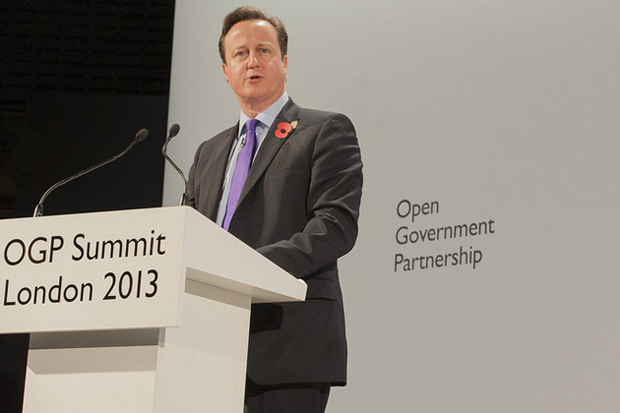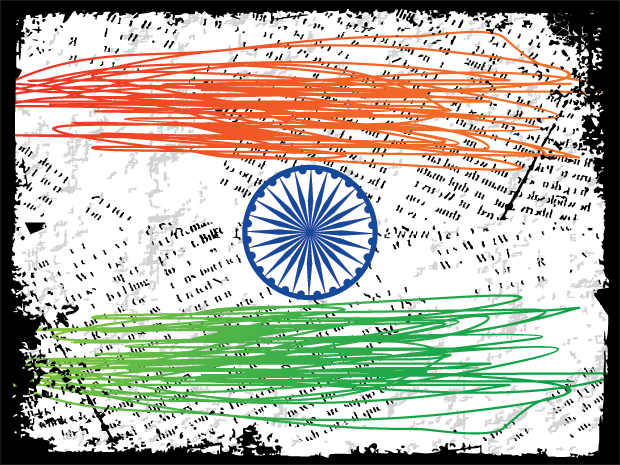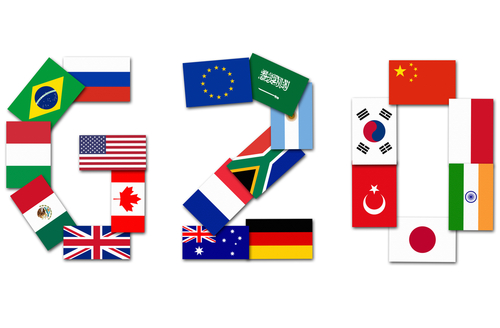1 Nov 2013 | News and features, United Kingdom

State control of the press is hot topic. On Wednesday, Queen Elizabeth signed off a Royal Charter which gives politicians a hand in newspaper regulation. This come after David Cameron criticised the Guardian’s reporting on mass surveillance, saying “If they don’t demonstrate some social responsibility it will be very difficult for government to stand back and not to act”.
But what does state control of the press really look like? Here are 10 countries where the government keeps a tight grip on newspapers.
Bahrain
Press freedom ranking: 165
The tiny gulf kingdom in 2002 passed a very restrictive press law. While it was scaled back somewhat in 2008, it still stipulates that journalists can be imprisoned up to five years for criticising the king or Islam, calling for a change of government and undermining state security. Journalists can be fined heavily for publishing and circulating unlicensed publications, among other things. Newspapers can also be suspended and have their licenses revoked if its ‘policies contravene the national interest.’
Belarus
Press freedom ranking: 157
In 2009 the country known as Europe’s last dictatorship passed the Law on Mass Media, which placed online media under state regulation. It demanded registration of all online media, as well as re-registration of existing outlets. The state has the power to suspend and close both non-registered and registered media, and media with a foreign capital share of more than a third can’t get a registration at all. Foreign publications require special permits to be distributed, and foreign correspondents need official accreditation.
China
Press freedom ranking: 173
The country has a General Administration of Press, Publication, Radio, Film and Television and an army official censors dedicated to keeping the media in check. Through vaguely worded regulation, they ensure that the media promotes and toes the party line and stays clear of controversial topics like Tibet. A number of journalists have also been imprisoned under legislation on “revealing state secrets” and “inciting subversion.”
Ecuador
Press freedom ranking: 119
In 2011 President Rafael Correa won a national referendum to, among other things, create a “government controlled media oversight body”. In July this year a law was passed giving the state editorial control and the power to impose sanctions on media, in order to stop the press “smearing people’s names”. It also restricted the number of licences will be given to private media to a third.
Eritrea
Press freedom ranking: 179
All media in the country is state owned, as President Isaias Afwerki has said independent media is incompatible with Eritrean culture. Reporting that challenge the authorities are strictly prohibited. Despite this, the 1996 Press Proclamation Law is still in place. It stipulates that all journalists and newspapers be licensed and subject to pre-publication approval.
Hungary
Press freedom ranking: 56
Hungary’s restrictive press legislation came into force in 2011. The country’s media outlets are forced to register with the National Media and Infocommunications Authority, which has the power to revoke publication licences. The Media Council, appointed by a parliament dominated by the ruling Fidesz party, can also close media outlets and impose heavy fines.
Saudi Arabia
Press freedom ranking: 163
Britain isn’t the only country to tighten control of the press through royal means. In 2011 King Abdullah of Saudi Arabia amended the media law by royal decree. Any reports deemed to contradict Sharia Law, criticise the government, the grand mufti or the Council of Senior Religious Scholars, or threaten state security, public order or national interest, are banned. Publishing this could lead to fines and closures.
Uzbekistan
Press freedom ranking: 164
The Law on Mass Media demands any outlet has to receive a registration certificate before being allowed to publish. The media is banned from “forcible changing of the existing constitutional order”, and journalists can be punished for “interference in internal affairs” and “insulting the dignity of citizens”. Foreign journalists have to be accredited with the Ministry of Foreign Affairs.
Vietnam
Press freedom ranking: 172
The 1999 Law on Media bans journalists from “inciting the people to rebel against the State of the Socialist Republic of Vietnam and damage the unification of the people”. A 2006 decree also put in place fines for journalists that deny “revolutionary achievements” and spread “harmful” information. Journalists can also be forced to pay damages to those “harmed by press articles”, regardless of whether the article in question is accurate or not.
Zimbabwe
Press freedom ranking: 133
The country’s Access to Information and Protection of Privacy Act gives the government direct regulatory power over the press through the Media and Information Council. All media outlets and journalists have to register with an obtain accreditation from the MIC. The country also has a number of privacy and security laws that double up as press regulation, The Official Secrets Act and the Public Order and Security Act.
This article was originally posted on 1 Nov 2013 at indexoncensorship.org.
25 Oct 2013 | Asia and Pacific, Digital Freedom, India, News and features

Just days before the United Nation’s led Internet Governance Forum in Indonesia, India, held its own – and first of its kind – conference on cyber governance and cyber security.
With the support of the National Security Council Secretariat of the Government of India, the two-day conference was organized by private think-tank Observer Research Foundation and industry body, Federation of Indian Chambers of Commerce and Industry, (FICCI). Speakers were from a host of countries including Estonia, Germany, Belgium, Australia, Russia, Israel, and of course, India.
It was ironic, that in a post-Snowden world, buried under allegations of the extent of the NSA’s spying, US officials were unable to attend the conference due to their government’s shutdown. Instead, other views took center stage, and India also visibly demonstrated the various positions its stakeholders take around the questions of governance and security.
Right at the kickoff, India’s Minister for Communications and Technology, Kapil Sibal, challenged the question of sovereignty and jurisdiction in cyberspace. “If there is a cyber space violation and the subject matter is India because it impacts India, then India should have jurisdiction. For example, if I have an embassy in New York, then anything that happens in that embassy is Indian territory and there applies Indian Law.”
India has, over the last few years, flirted with the idea of an UN-lead internet governance structure, and subsequently backed away from it. Minister Sibal said that India believes in “complete freedom of the internet”, however, at the same time needs to acknowledge that along with cyber freedoms come cyber gangsters, and the state and its citizens need to be protected from them.
India, with its 860 million mobile subscriptions (although, the numbers of users would be lower than this figure) is looking more and more to the internet as a delivery platform of socio-economic programs and a tool to boost the economy. That the internet can raise GDP by 10% is a much favored figure for those who promote the internet for economic reasons. The fact is that as the remaining unconnected population of India begins to acquire net connections through desktops and smart phones, the government is increasingly looking at security and surveillance over the internet as a necessary and inevitable route. This also means that the government needs to rely on industry to help them with this gigantic task.
The possible synergy between businesses and government in India was a central theme for discussion; as industry bodies asked the government to invest in training more cyber security specialists and also start moving towards uniform security standards and protocols. In fact, Indian industry most certainly wants to be relived of the financial burden of training personnel, and to an extent, investment in security R&D, and is keen to partner with the government to achieve both ends. Indian industry is often in the news because it appears almost universally under prepared for cyber attacks, both from within the country and externally. Suggestions of a government-led cyber awareness program were made as well, with calls to allocate funds for these exercises in the budget.
However, as has been the case in India, the real source of friction still lies between civil society and the government over the question of surveillance and monitoring. In a session entitled ‘Privacy and National Security’; perhaps the only India-centric panel of the entire conference, the debate became overheated. The panel consisted of a senior police officer involved in surveillance, India’s director-general of CERT (Computer Emergency Response Team), a representative from the mobile industry and a privacy expert. The government official was pushed by civil society members and journalists to explain the workings of the Central Monitoring System, still very opaque to the public, and later the official definition of privacy. He did neither. Unsurprisingly, India is yet to really define what privacy is, leading to simultaneous furor in the room and twitter (#cyfy13) about why this hasn’t been done as yet.
The sense in the room was that surveillance, while necessary to protect citizens, is only really effective when it is conducted in a targeted manner. Mass surveillance leads to self-censorship and is, in the end, counter productive. The other bone of contention was the question of identity, with the government making arguments that verifiable cyber identity is a possible solution to cyber crime. However, other participants found the issue troubling, as anonymity is necessary for a number of reasons, including as we have seen around the world, political dissent.
Finally, panelists discussed how best to inculcate a multistakeholder approach when legislating the internet. It was pointed out more than once that the internet was a product of private enterprise, made on open standards and principles, but now governments are attempting to control this resource. However, while public calls for multistakeholderism were made for many reasons; human rights, protection of privacy and even to benefit business in the long run (as they would not risk being caught up in lengthy court cases in the future if they took civil society on board from the start), there was still an elephant in the room. Offline, many official participants wondered why Chatham House Rules were not observed, or why there were no closed-door meetings only for government officials. It was clear that much of the weighty – and honest – discussions still don’t involve the public. Perhaps not where the question of governance is, but certainly when the question of security is.
Ultimately, there are two broad outcomes of this conference. The first is that India has indicated its willingness to start shouldering discussions to do with the global cyberspace. The other is, as India’s National Security Advisor put it, — ““India has a national cybersecurity policy not a national cybersecurity strategy.” This is certainly a start to building a consensus for that strategy.
This article was posted at indexoncensorship.org on 25 Oct 2013.
24 Oct 2013 | Campaigns, Europe and Central Asia, Events
Index on Censorship wants Europe’s leaders to place the issue of surveillance on the agenda for the European Council Summit. Our petition calling for this, backed by 39 organisations and thousands of individuals, was this week sent to Lithuanian President Dalia Grybauskaitė, who currently hold the Presidency of the Council of the EU, and Herman van Rompuy, President of the European Council.
Since the petition targets all 28 EU leaders, we wanted each of them to have their own copy. But as revelations continue to emerge about the scale to which electronic mass surveillance has been taking place, we didn’t think email would be the safest way to distribute it. Instead, we decided to send our intern Alice to deliver the petitions to embassies around London – the old fashioned way.
Marek Marczynski, Index’s Director of Campaigns and Policy, explains how mass surveillance infringes on your right to freedom of expression, and why we must oppose it.
29 Aug 2013 | News and features
 As global power starts to shift both South and East, and the G20 overshadows the G8, will freedom of speech and broader human rights still receive support around the summit tables?
As global power starts to shift both South and East, and the G20 overshadows the G8, will freedom of speech and broader human rights still receive support around the summit tables?
While the BRICS – Brazil Russia, India, China, and South Africa – range from active democracies to repressive authoritarian states, none are keen to take lectures from western countries on free speech.
And whistleblower Edward Snowden’s still unfolding NSA and GCHQ revelations are surely weakening the US and UK’s credibility in promoting rights internationally. Mass surveillance of digital communications undermines free speech online: monitored conversation is not free, as anyone from Iran or China can attest.
Nor are the democratic BRICS yet taking any international lead on free speech and other rights.
If free speech is to be actively defended in the multipolar order, both the emerging democratic powers and the older western powers must stand up, however imperfectly, for rights, at the UN, the G20 or in bilateral dialogues, and not let economic interest, security priorities, and diplomatic convenience hold sway.
Some European diplomats confidently see the EU, US and Japan as the prime defenders of free speech, while Brazil, India and South Africa are “swing” states to bring on side against China and Russia. But from digital to media freedom to transparency and corruption, the picture is more blurred.
The Snowden revelations risk seriously weakening the US’s credibility in pushing for digital freedom and an open internet against a joint Russia-China quest for top down global internet control. The geopolitics of internet governance were exposed at an international telecommunications summit in Dubai last December – Russia and China pulling almost 90 countries including Brazil and South Africa behind them in a test vote. India wobbled before joining the US, EU and Japan.
But efforts to get democratic BRICs to support an open internet may now falter. ‘Do as we say, not as we do’ is never the most convincing of arguments.
Digital freedom may retreat further if the NSA scandal prompts a more rapid fragmentation of the internet as some fear. While Iran and China already seek to segment their national internets, if the EU and others respond with moves to insulate their networks more from the US then fragmentation may gather speed.
Yet direct censorship of the internet – imposing blocks and filters – is much more common in authoritarian regimes – with China and its great firewall targeting free speech extensively in ways not seen in the multipolar democracies.
But there are some troubling trends. Both the UK and India criminalise ‘grossly offensive’ comment on social media – with arrests for Facebook posts and tweets in both countries . And Brazil and India often top the lists in Google’s regular transparency reports on takedown requests for online content.
On press freedom, the picture for western democracies is fairly positive: they are ahead of the democratic BRICS who are, unsurprisingly ahead of Russia then China. But it’s a varied picture – Germany and the US are substantially ahead of the UK and France, with South Africa coming in just ahead of Japan according to Reporters without Borders press freedom index – and then Brazil and India trail behind. And such indicators cannot reflect the granular reality of Obama’s prosecution of media sources, or the UK debate on statutory press regulation.
At the international level, western countries are often seen as readier to challenge individual countries’ human rights records, than India, Brazil and South Africa. Yet Brazil and India voted with the US criticising Sri Lanka’s record earlier this year while Japan abstained. And the EU and US can hesitate too in the face of economic interests not least in dealings with China.
Transparency and corruption is where western countries do best. The US, Japan, Germany, France and the UK all score fairly high up on Transparency International’s annual ranking, while Brazil and South Africa languish in the middle, India is behind China, and Russia scores even below China (and India) too. But the US and UK’s transparency record will surely be reassessed given Snowden’s leaks.
With this mixed record of the democratic powers, will we hear less about free speech and human rights in the multipolar, digital world? At least, with whatever flaws and double standards, the majority of the G20 are democracies with robust debates on free speech at home. But the revelations of mass digital surveillance now cast a long shadow.
Perhaps one more positive outcome of the US’s stumbling over mass surveillance will be if it gives India, Brazil and South Africa the confidence to speak out strongly on the international stage including holding western players more to account on free speech. If so the multipolar democracies would then have more, not less, credibility in pointing the finger at authoritarian regimes.
Read more about the multipolar challenge to free expression in the current issue of Index on Censorship magazine



 As global power starts to shift both South and East, and the G20 overshadows the G8, will freedom of speech and broader human rights still receive support around the summit tables?
As global power starts to shift both South and East, and the G20 overshadows the G8, will freedom of speech and broader human rights still receive support around the summit tables?